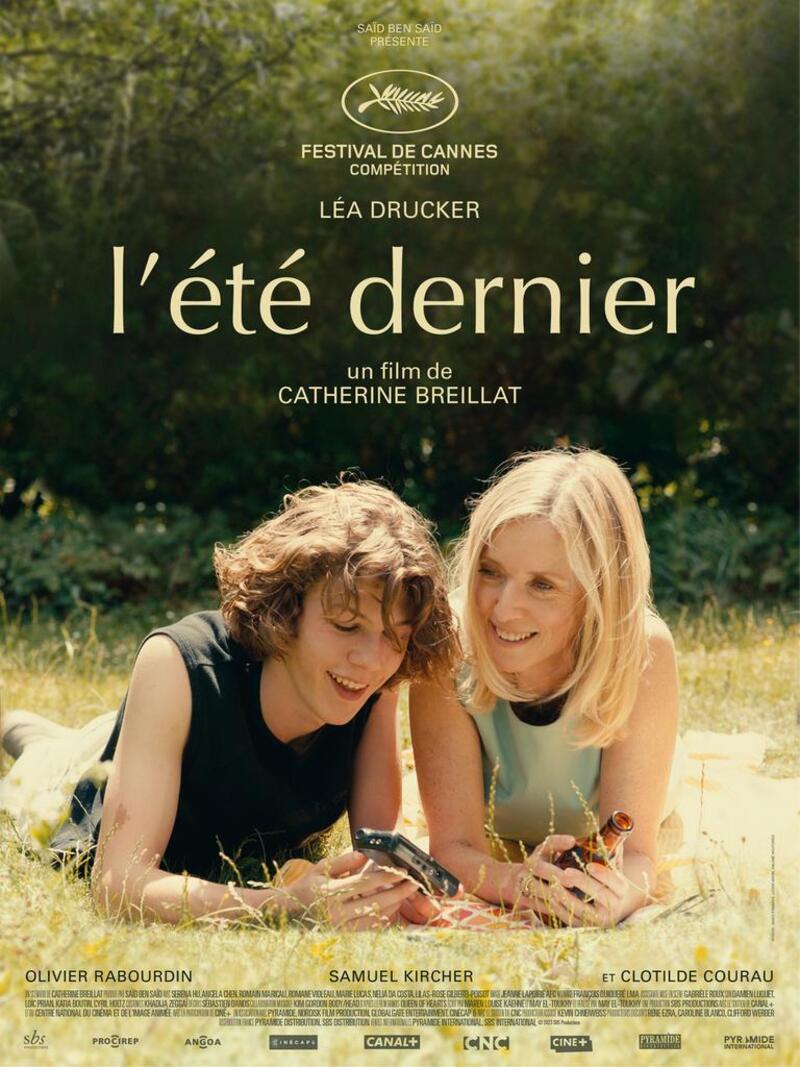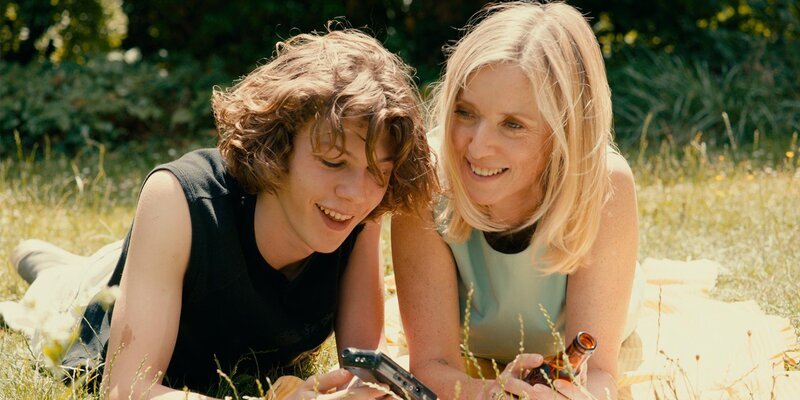
Review by
Eric Hillis
Directed by: Catherine Breillat
Starring: Léa Drucker, Samuel Kircher, Olivier Rabourdin, Clotilde Courau

While American remakes of European films are common, it's much rarer to
find European remakes of films from other countries of the continent.
This is probably largely down to the simple fact that while most
Americans are averse to subtitles, Europeans are well accustomed to
watching movies in languages other than their own. For a viewer in
Spain, watching an American movie is no different to watching one from
Belgium. There's also the idea that western Europe shares a cultural
outlook that is largely homogenous at this point. There are however
subtle differences between European nations which might seem to share a
similar cultural point of view, largely holdovers from the continent's
religious past.
Such subtle variations can be noted between the Danish film
Queen of Hearts
and Last Summer, its new French remake by director Catherine Breillat. Both
movies are about a middle-aged woman who embarks on a sexual affair with
her 17-year-old teenage stepson. Were this story to play out in America,
the boy would be underage and it would be a narrative of sexual abuse.
In both France and Denmark the act is legal, so it's instead a narrative
of wrestling with a moral taboo. Yet while the Danish and French movies
share almost identical plots, the Protestant doubt of the former is here
traded for Catholic guilt.

The role previously played so brilliantly by Trine Dyrholm is now
occupied by Leá Drucker. Her Anne is a successful lawyer who
specialises in cases of sexual assault. The film opens with her coldly
preparing a client for the gruelling cross-examinations she is set to
receive if she takes her accusations to trial. Anne warns her young
client that the defence will do everything they can to make her look
like a sexually promiscuous teen given to flights of fancy. It's a scene
that will later prove highly ironic.
Fortysomething Anne is in a stable but dull relationship with her
slightly older husband Pierre (Olivier Rabourdin), who has one of
those ambiguous "something to do with money" jobs French films always
seem to foist on middle-aged, middle class figures they wish to
represent the boring bourgeoisie (the corresponding character in the
more nuanced Danish original was a doctor). Anne, who always seems to
have a glass of red in her hand, gives the impression of a bird Pierre
managed to long ago cage. While making missionary love, Anne recounts
the story of how as a 14-year-old she had a crush on an "old man." She
now finds it amusing that the "old man" in question was a mere 33 years
old at the time.

It almost seems as though Anne is mentally preparing and excusing
herself for the transgression she's set to commit. That comes when Theo
(Samuel Kircher), Pierre's tearaway son from a previous marriage,
comes to stay with the couple for the summer. He's a proper wrong 'un,
faking a break-in and stealing Anne's handbag and its contents. When
Anne catches him out, she makes a pact – if Theo stops acting like an
asshole to his father she won't rat him out.
This act on Anne's part seems to light a spark in Theo. If she's
willing to keep a secret of this magnitude from her hubby, what else
might she be willing to keep between herself and Theo? Thus Theo begins
a campaign of aggressive flirting until eventually Anne gives in and the
pair end up in bed while Pierre is away on a business trip. In a moment
of post-coital clarity, Anne suggests they pretend the incident never
happened, but she can't help but give in to Theo's demands. When she
later tries to end things permanently, Theo reveals a darker side,
putting both Anne's career and marriage in jeopardy.

Last Summer differs from its predecessor chiefly in its
portrayal of Anne's motivations. In the original she's the one who
pursues the teen and is ultimately the seducer, whereas here this
dynamic is flipped. There are certainly hints that Anne might be up for
some transgressive fumblings but unlike her Danish counterpart, she
holds back. There's also a key difference between how the two female
protagonists are mentally tormented. In the case of Danish Anne, she was
struck by doubt. We saw her examining the folds of flesh on her
middle-aged body, and listening with a pained expression as her young
lover made out with girls of his own generation in the next room. French
Anne has no such doubts. Drucker might be 50 but she boasts an athletic
figure most 20-year-olds would kill for. When Theo parades a lithe young
girl in front of her, she merely smirks. Breillat has opted for a story
of a woman who is always in control, whether it be professionally or in
her marriage (we see how she knowingly uses her "trophy wife" status to
wrap Pierre around her little finger), who now finds herself in danger
of having to give in to the manipulations of someone as equally
practiced in her dark acts. Both approaches are interesting in their own
right, though the Danish version will likely prove the more relatable
for female viewers of Anne's vintage.


